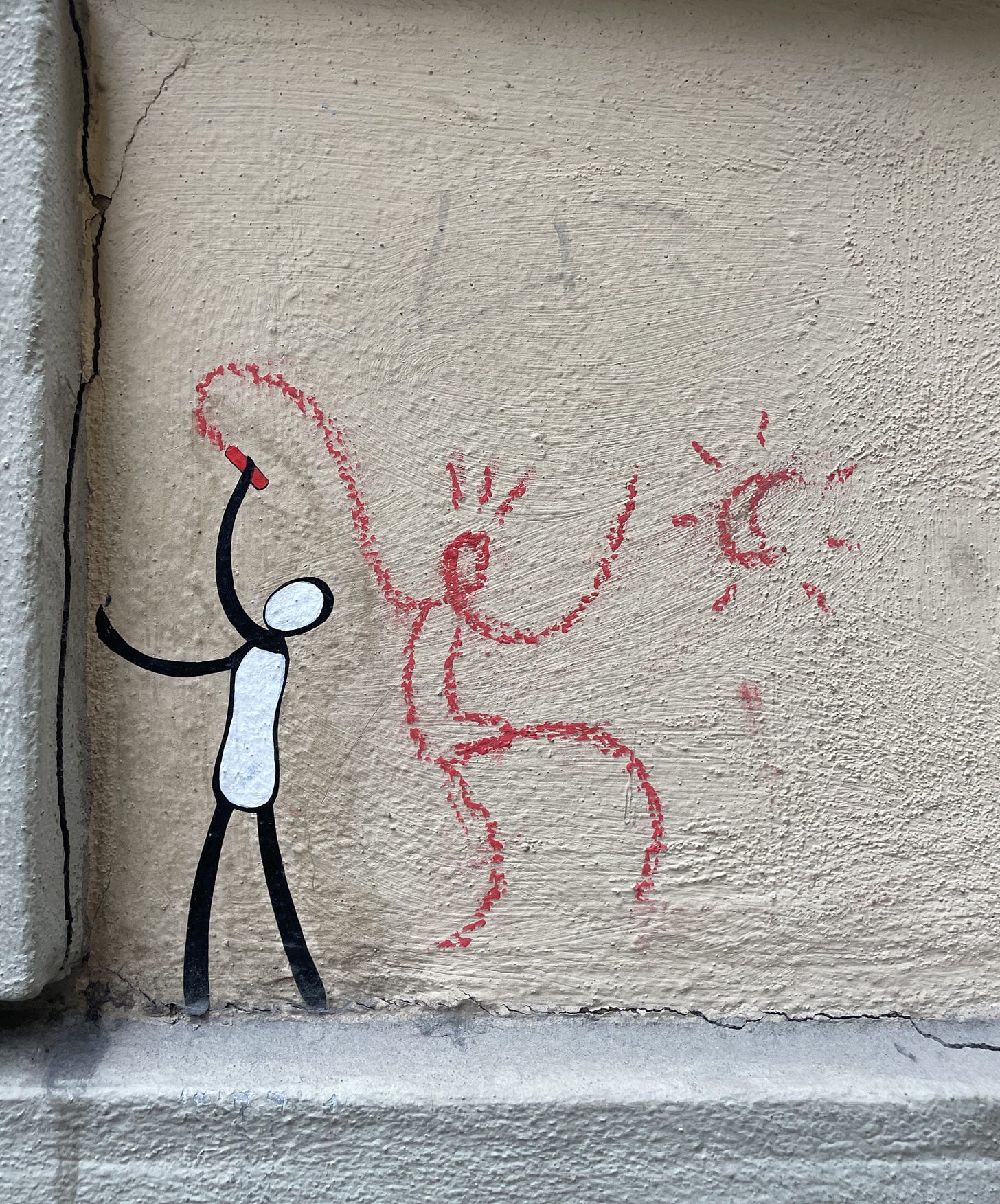After I put out my graduation essay, someone commented (anonymously), “Tbh it took me a few times to read this but I just needed to not be distracted…”
I completely get it. We are bombarded by distractions. Faster, funnier, easier forms of entertainment lurk around every digital corner. I have deep respect for anyone who devotes even a small slice of their free time to read someone’s Substack essays. I often don’t have the time or energy to focus on anything longer than a quick, pleasant thought myself.
So I find myself wondering: what’s the point of writing or reading in a world drowning in pleasure? For a generation raised on Instagram, TikTok, and streaming, will reading feel like chewing on bitter vegetables between sweet, delicious meals? Will writing as an art fade if everyone starts using ChatGPT to craft their essays?
Much of this technology is here to stay, and the future of the writing world—as we’ve known it—doesn’t look especially bright. Local newspapers are vanishing, magazines are dying (or so my writing advisors say), and the publishing industry is contracting.
But I believe there’s a silver lining: in this world of constant distraction and media overload, we’re actually surrounded by art. Social media is—or at least has the potential to be—a vibrant, free creative marketplace. I’d argue it’s never been easier to create and reach a wide audience. You can make a reel in under a minute, and in the next, it can spread to thousands of screens.
Thinking of social media as art isn’t just convenient–it’s culturally true. The ways we connect and socialize today are vastly different from a hundred years ago. Naturally, our art will look very different from our great-grandparents’ art. Much of it will/does exist online, however unglamorous that may seem.
In order to stay relevant, I think that writers can, and should, incorporate “lowbrow” media. Why not? Art purists always lose in the long run. Photography was once dismissed by painters; video was scorned by photographers. I’d rather that writers let themselves be creatively flexible and culturally reflective than try to box themselves into dull, protected little corners where they try to recreate the last century’s greatest novel.
This is why, when I publish an essay on this Substack, I include photos I snapped on my iPhone. It’s why I think of my Instagram as a creative platform where I can have fun and tell a little bit of a story.
I think best in prose, but my writing is deeply shaped by my social media diet, my camera roll, and conversations with friends who consume the same content. When your writing professor says, “Write what you know!” doesn’t that include social media captions? Goodreads reviews? Reddit posts? Wouldn’t you call Humans of New York art? Aren’t “content creators” simply producers of creative, bite-sized depictions of life? Isn’t social media just another accessible gallery of human expression and creativity?
In this section, I clumsily conclude
This essay resists a single thesis — maybe because I resist one too. I’m tangled up in this topic, just like everyone else.
I’ve done my fair share of moralizing in these essays, but let me do a bit more:
If social media is here to stay, I think we should embrace its rich creative potential. Creativity can benefit anyone—from writers to art-phobic Chat-GPT users. Creativity is therapeutic. It helps us process experiences and emotions from fresh perspectives. It makes it easier to savor the good and externalize the bad. And, most importantly, when we share that art, we forge and strengthen social connections–the very purpose that social media claims to serve.
I’m not suggesting we all become content creators or chase attention for attention’s sake. We shouldn’t do what feels inauthentic or goes against our instincts. But if these platforms are woven into our social fabric, if escaping their pull is nearly impossible, why not have a little fun? Why not use them for self-expression and genuine connection, rather than just passively consuming content?
Kurt Vonnegut:
“Bill Gates says, ‘Wait till you can see what your computer can become.’ But it's you who should be doing the becoming, not the damn fool computer. What you can become is the miracle you were born to be through the work that you do.
“The arts are not a way to make a living. They are a very human way of making life more bearable. Practicing an art, no matter how well or badly, is a way to make your soul grow, for heaven’s sake.”
This is the last of three loose essays on pleasure and technology. There may be more if I get new thoughts.
Please let me know your thoughts, either in the comments or in this anonymous form.
Also, check out this essay I wrote back in April (“Ask More Stupid Questions”) which touches on some of these same themes.




